Volunteered - Interview
by John Clarkson
published: 24 / 12 / 2018
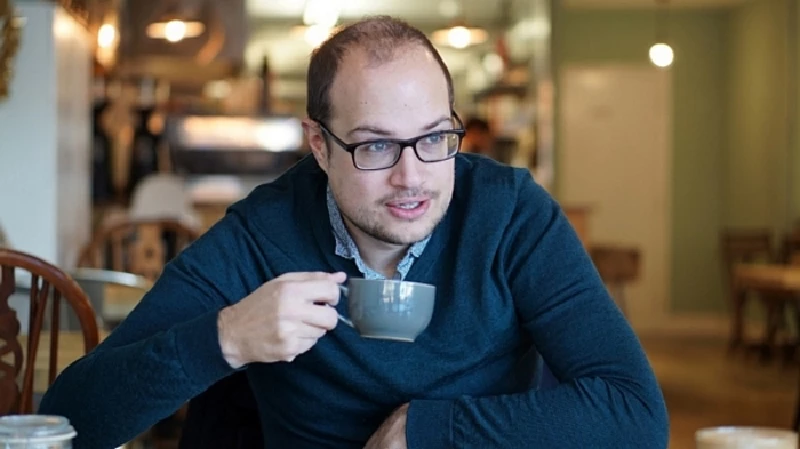
intro
John Clarkson speaks to London-based singer-songwriter and guitarist Mark Rowland about his new indie-folk project The Volunteered and its debut EP, 'We Don't Listen'.
Mark Rowland’s previous band, indie rock trio Partisan Waves, was a regular presence on the London small club circuit. Formed by Mark (vocals, bass guitar) and his school friend Paul Webber (guitar, vocals) at the start of 2015, they played several gigs across the course of that year, winning steady audiences and acclaim for their Wedding Present and Pavement-influenced form of indie/noise rock. Shortly after it had played a Pennyblackmusic Bands’ Night in April of 2016 where they had launched their one and only EP ‘Somewhat Cracked’, Partisan Waves, however, fell into hiatus and eventually broke up when the group’s third member Daniel Brown (drums, vocals) decided to quit. Mark has now formed a new project The Volunteered, in which he sings and plays acoustic guitar and bass, and is helped out with arrangements and recordings by Webber, who also provides electric guitar and percussion. He has spent this year showcasing Volunteered songs on Soundcloud and Facebook and in short solo slots at open mic nights. Now, with Webber also involved, he has released The Volunteered’s debut EP, ‘We Don’t Listen’, on Bandcamp. More indie folk-centred and less discordant in tone than Partisan Waves, the EP opens with the hazy and lo-fi confessional of ‘Drinking Song’ in which its repentant narrator reflects on a series of destructive winters spent in a semi-permanent drunken state. ‘Paul Newman’ has a rippling melody reminiscent of Orange Juice, while Webber throws in a twanging guitar solo in its middle that recalls Duane Eddy. At nearly five minutes in length the eerily beautiful and crisply arranged ‘Tell Them What They Want’ is the longest track on ‘We Don’t Listen’, before the EP is closed with another lo-fi number, tender love song ‘Rivers’, which with Webber’s rumbling electric guitar cutting in towards its end brings it to a stark but powerful close. Pennyblackmusic spoke to Mark Rowland about beginning again and The Volunteered. PB: Why did you and Paul decide to break up Partisan Waves and start a new project rather than carry on possibly with a new drummer? MR: It wasn't really a conscious decision. It just got a bit too exhausting. At the time, my son was seven months old. My wife was dealing with a very difficult issue with her former employer, relating to her maternity leave. I'd been organising everything within the band, and I couldn't do it anymore. We did try to get a new drummer for a while, but we weren't having any luck, and in the end I let it slide. I think we needed the break, to be honest. Partisan Waves was fun and I'm proud of some of the work we did, but there were some things that weren't working, and, sooner or later, those things would have become an issue. As the kind of de facto band leader, a lot of those were on me. I wasn't willing enough to step up and make decisions when I probably should have. All good lessons to learn, though! And the break gave me a chance to assess and improve. PB: The Volunteered seems to fall somewhere between being a solo act and a band, being not quite one or the other and yet at the same time both. How does it work and how much of that came about as a reaction to Partisan Waves? MR: Well, I started it as a solo project, and as you say, it still sort of is. Being a father now means that I have different commitments, so I knew that it needed to be something looser, but I also missed playing music a lot, and I'd started writing more songs. In April, I decided to record some of those songs and throw them online, to sort of rip off the bandage and force myself to do more. I recorded very quickly, very rough versions during my son's nap time. I barely tuned my guitar, and everything was done in one take. Then I put them online and pointed people in their direction. I didn't have any idea where to take it other than I needed to be able to play the songs on my own. There have been two people (other than my wife!) who have pushed me onwards with this project. One is Andy Simmons Elliott, who used to be in Das Wanderlust and Council Tax Band. We were encouraging each other to start playing again – our children are similar ages – and I don't think I'd have got started without that. The other was Paul, who came forward after I posted my solo tracks and said he wanted to play music with me again. We've known each other for years, so we hadn't particularly lost touch. I decided I wanted to take the project in a more indie folk/folk rock direction, and we chatted about that a bit. A couple of days later, Paul sent me a message saying: "I hope you don't mind, but I've had a go at an arrangement for one of your songs" – that was ‘Tell Them What They Want’. I do consider Paul to be a permanent member of the band, but since we formed he's also become a father, so I want to give him the freedom to come and go as he pleases. All the shows I've played so far have been me on my own, which has been slightly terrifying, but mostly well received. I'm hoping to put together a 'touring band' and do some bigger shows next year. It's largely a recording project at the moment. When it comes to lessons learned about Partisan Waves, I think Paul and I have learned to be less precious, and I've got better at speaking my mind if something strays too far away from what I'm trying to do. We know our strengths better, and we're playing to them more. PB: What was the criteria for choosing the four songs that you have for the EP? MR: There are a few factors really. I wanted it to be a statement of intent, something that gives you an idea of what the band is about. But I also didn't want to throw all of our best songs onto it, as it was designed as a bit of a teaser, more than anything else. This project is very new, and still has a lot of growing to do. I also wanted it to flow well, and I wanted them to be songs that Paul and I had worked on together. Those are a little more produced, and generally have a fuller sound. The most interesting factor that played into it was probably data, however. I'm still really getting my head around it, but growing an audience these days is a lot more about sort of showing your working – publishing very raw versions of songs on Soundcloud and the like and seeing how they're received. It can be brutal – numbers don't soften their message – but it does give you an idea of what works and what doesn't. ‘Drinking Song’, the opener on the EP, for example, is one of our most popular songs on Soundcloud, so I put it on the EP for that reason (though I expect new versions of it will materialise on future releases). PB: Putting yourself onto a public platform like Soundcloud is quite a brave thing to do. What did people feel were your strengths and give you to work and build on which was positive? MR: Soundcloud is a funny one. It's an anomaly as social media platforms go, as it's almost overwhelmingly positive – if you want to make traction on that platform (without buying likes or blanket following everybody), you have to be genuinely sociable and take an interest in what other people are doing. I kind of work out a rudimentary success rate of a song based on likes and reposts to number of listens – the better the ratio, the better the hit rate (as long as you're getting enough listens for it to matter). Comments are a good indication as well. The most useful, however, is the more meaningful conversations with artists you meet there. I've become friends with another artist, MK Ellison https://soundcloud.com/mkellison, who is an extremely talented songwriter (who knows how to use Soundcloud better than me!). She's given me some good pointers on my songs, and I've done the same to her. It opens up a global network of peers. It's great in that respect. PB: Why have you chosen the name of The Volunteered for this project? MR: There are a couple of pubs near us called 'The Volunteer'. There's one in particular that I walk past when I head into the nearest town. It's a small, old-looking pub in the middle of a fairly residential street. It has quite a memorable sign, of a soldier dressed in 18th century garb. He's kind of blank faced, so you can sort of read your own expression into him, if you know what I mean. To me, he sort of looks resigned, like he's given himself up to fate. It got me thinking about the word 'volunteer', and what it conjures up. It makes you think of brave, selfless people. People who sacrifice some or all of themselves for a greater good. It evokes something historical – world wars and the like – but also recent years, where people have stepped up to help those hardest hit by the long tail of the financial crisis. I planned to go with the name 'The Volunteer' to start with, but then I just started thinking: maybe The Volunteered is better. There's something a little more sinister to it, don't you think? It suggests that people have had their choice taken away for them. It also suggests a movement – a group of people who all gave up a part of themselves. More important than that, though, it's a simple, recognisable word that no other band seems to use. They're like gold dust these days. It meant that I didn't have to call it Inter-dimensional Carrier Bag or a similar Googlewhack. PB: Your live work with the Volunteered has so far been confined to playing open mics of two or three songs? Why did you decide to start out there and when do you hope to do more extended sets? Will that involve a band of just you by yourself? MR: I've deliberately stuck to open mics initially as a kind of long warm-up. You can feel really exposed playing on your own in front of a crowd. The plan is to play extended sets in 2019. I'm hoping that will mostly be with some kind of band. I want Andy and Paul to be part of my live band and hopefully others will join us – but I expect some shows will be solo. I hope I'll be prepared! PB: 'Drinking Song' tells of a young man who "spent a few winters living in a liquid haze." Many young men go through that rite of passage and stage where they spend a lot of time either drunk or hungover. The older version of that young man seems to look back on that version of himself with some regret. How much of that was autobiographical and how much of that was written about other people? What did you mean by the lines "Sugary thoughts we left in the past/Is it too much to ask that we don’t listen?" which conclude it and give the EP its title? MR: It was inspired by younger people I know now – relatives in particular – making similar drunken mistakes that I did. I went through a period in my late teens in particular where I was drinking a ridiculous amount, and did and said things that I regret now. So while the song isn't autobiographical, it's coming from some kind of truth. As you rightly point out, the character is reflecting on their past. The 'sugary thoughts' line refers to the way our memories tend to sugar coat or rose tint the past. The person is pleading to another person – in my head it's an ex – who cannot accept that their exploits did harm to themselves and others. I think nostalgia can be quite a tempting thing. It can be easy to get seduced by it. That was my thinking, anyway, but I hope that it's open to interpretation. That's why I liked 'We Don't Listen' as a title – you can apply it to a lot of things. PB: 'Paul Newman' opens with the lines "Never thought I would see your face/It's been years since you tried to be my friend." Who is that directed at and where does Paul Newman fit in? MR: This song is probably more Paul's song than mine. He brought in the chords, melody and rough lyrics, and I helped refine the lyrics and wrote the chorus. I believe he wrote the song initially as a reaction to the UK political shambles we've been experiencing over the past couple of years. I think he felt the political class were pandering to people in a sort of baseless way, though I don't want to speak too much for him. The song inevitably became something a little more universal. The title is sort of a joke, to be honest – it was labelled as 'Paul New One' for ages. But I'd like to think the song has a bit of a Newman-esque attitude to it. I like to imagine myself as Paul Newman when I'm singing it, which isn't a stretch as Newman and I have a lot in common (honest). PB: ‘Tell Them What They Want' could be described as being reminiscent of a less abstract Big Star about the time of their 'Third Album'. Was that what you were aiming for? It is about someone who is being pushed into pretending to be something they are not. What inspired that one? MR: Well I do love the first three Big Star albums, so it's inevitable that it would sneak in there, but I wasn't specifically going for a Big Star sound, although they're definitely a huge influence on The Volunteered in general, and 'Third' in particular, as I think that suits my songwriting instincts better, and I like pretty songs with a bit of abrasion and weirdness to them, which is definitely something we're exploring. 'Tell Them…' is about trying to fight back, and ultimately giving in, to a powerful force pushing you to conform. It was inspired by watching my wife, and other women in my life, battle with this great weight of expectation on their shoulders. Women more than men are often expected to behave in certain ways in certain situations. They're pushed aside more often as well. It shocked me to find out how many women are let go when they're pregnant or on maternity leave, because their employer sees them as an inconvenience, for example. That's massively discriminative, but the women who are let go rarely have the resources to be able to fight it. It's a very steep, uphill struggle. We've seen some good progress in more visible areas, such as Hollywood, in recent months, but I doubt it will have made much difference to ordinary people. Hopefully it will over time. Obviously, you could apply that experience, of feeling powerless and eventually giving in, to lots of situations. So hopefully it will resonate with more people. PB: ‘Rivers’ has got that understated but powerful quality of someone like Elliot Smith. Was that what you were aiming for? It seems to capture a situation that many of us go through in long term relationships/marriages when something has gone badly wrong for one half of the partnership and the other half is trying to carry for each of them. What inspired that one? MR: The Elliott Smith comparison is very flattering, thank you! I'm not sure what style I was aiming for really. It just seemed the right fit for it. It's an older song. It was inspired by a time when my wife and I had an exhausting run of bad news – a couple of relatives died, a friend of mine died, we were kicked out of our flat by our greedy landlords, forcing us to look for a home to buy earlier than we intended – and we ended up living with my parents for a couple of months. It all got a bit much for my wife, and I was trying to keep her spirits up. So, I wrote ‘Rivers’. I'm not sure if the metaphor holds up, but it sounded nice with the melody. PB: You talked about some live dates with a full band. What else are you hoping to do with the Volunteered in 2019? Are you planning to do more recording? Do you have any other plans? MR: I have an album's worth of material, and I'm hoping to spend time recording it over the spring. I've always been a little rushed when it comes to recording, so I want to give every song the time it needs to be right. I'm not sure I'll be releasing all these songs as an actual album, though – more a couple of EPs and a few singles. I might bundle them up into one package later in the year if they're well received. Other than that, I just want to keep improving – write better songs, play better, sing better – and reach a few more people. PB: Thank you.
Band Links:-
https://thevolunteered.bandcamp.comhttps://www.facebook.com/TheVolunteeredMusic/
https://twitter.com/TheVolunteered
Play in YouTube:-
Picture Gallery:-
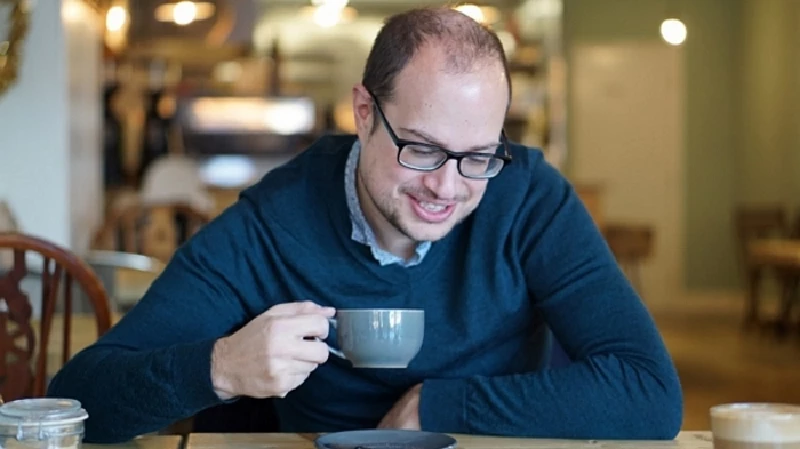
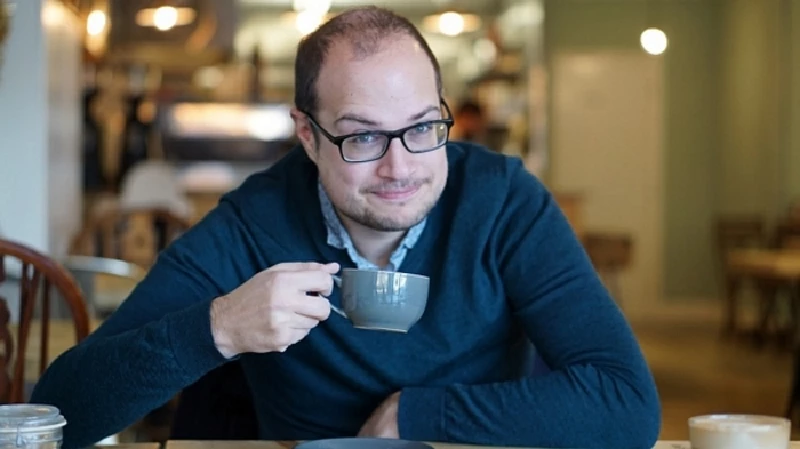
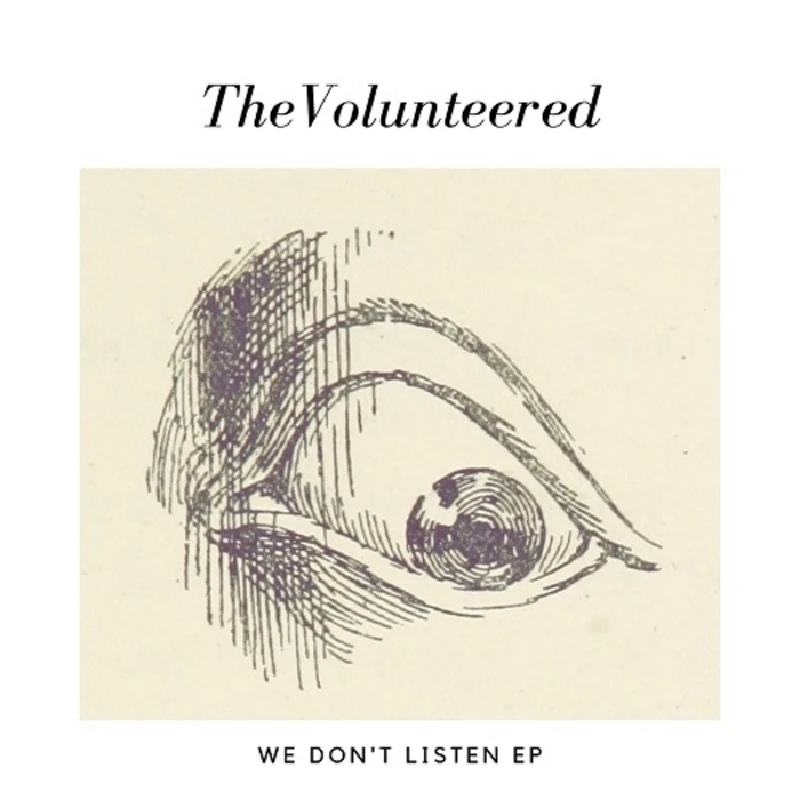
interviews |
|
Interview (2022) |
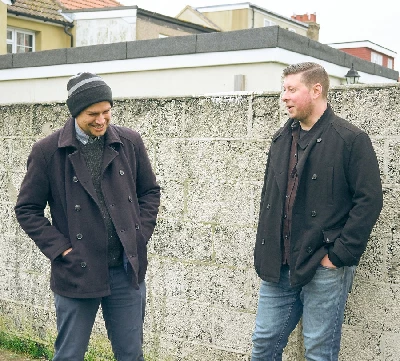
|
| Mark Rowland, the frontman with South London indie band The Volunteered, talks to John Clarkson, about its debut album 'We Fall Apart', which has expanded from an EP into a vinyl LP, and the change in its line-up from a duo into a five-piece group |
| Interview (2020) |
photography |
|
Photoscapes (2024) |
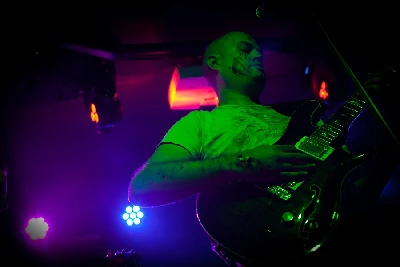
|
| Marie Hazelwood takes photos of indie band The Volunteered at our 25th Anniversary gig at The Water Rats in London. |
most viewed articles
current edition
Tossing Seed - InterviewMotorcycle Boy - Interview
Last of the Lovely Days - Interview
Lemonheads - O2 Ritz, Manchester, 16/8/2025
Waterboys - Roundhouse, London, 1/6/2025
Cary Baker - Down on the Corner: Adventures in Busking and Street Music
Robert Forster - Interview
Belouis Some - Video Vault
Brian Wilson - 1942-2025
Morrissey - Photoscapes
previous editions
Flip Side - Raging PagesBob Mould - Brooklyn Bowl, O2 Academy, London, 11/2/2016
Bill Hicks - Profile
Stereogram Revue - Voodoo Rooms, Edinburgh, 2/12.2015
That Petrol Emotion - That Petrol Emotion, Town and Country Club, London, 1988
Dave Greenfield - 1949-2020
John Clarkson - A Life in Music
Miscellaneous - Minehead, Somerset, 8/5/2009...10/5/2009
School - Interview
Ain't That Always The Way - Alan Horne After The Sound of Young Scotland 2
most viewed reviews
current edition
Liarbilitys - VandalheartKirk Adams and Ed Woltil - Eat The Sunshine, Drink The Starshine
Big Flame - Peel Sessions 84-86
Silver Biplanes - Coming Up For Air
Suzie Ungerleider - Among The Evergreens
Wolf Alice - The Clearing
Bruce Dickinson - More Balls to Picasso
Good Charlotte - Motel du Cap
Rupert Wates - Father to the Man
Phew, Erika Kobayashi,, Dieter Moebius - Radium Girls
Pennyblackmusic Regular Contributors
Adrian Janes
Amanda J. Window
Andrew Twambley
Anthony Dhanendran
Benjamin Howarth
Cila Warncke
Daniel Cressey
Darren Aston
Dastardly
Dave Goodwin
Denzil Watson
Dominic B. Simpson
Eoghan Lyng
Fiona Hutchings
Harry Sherriff
Helen Tipping
Jamie Rowland
John Clarkson
Julie Cruickshank
Kimberly Bright
Lisa Torem
Maarten Schiethart